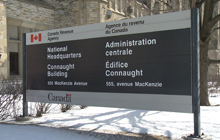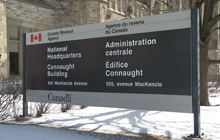Multinational accounting under increased scrutiny as BEPs reporting begins

Minister of National Revenue announces first OECD information exchange
OTTAWA, July 11, 2018 – The accounting practices of Canadian multinationals are now subject to a higher degree of tax scrutiny, as the first international exchange of revenue information between countries is underway. “I am pleased to announce today that Canada has successfully initiated its first round of exchanges of Country-by-Country reports,” said Minister of National Revenue Diane Lebouthillier yesterday in Ottawa.
As one of 69 nations, Canada will exchange information on the revenue, profit, tax and accumulated earnings information of large multinational enterprises, as part of base erosion and profit shifting (BEPS) project undertaken by the Organisation for Economic Co-operation and Development (OECD).
According to David Rotfleisch, tax lawyer with Rotfleisch & Samulovitch in Toronto, “This announcement is a confirmation that the provisions of the OECD treaty entered into last year are progressing as expected. The goal is to try to deal with the shifting of profits by large multinational corporations into low tax jurisdictions. The information exchange will allow tax authorities to better plan their audit strategies.”
Under country-by-country reporting, “Canada now has automatic access to more information and data that will allow the Canada Revenue Agency to better risk assess large multinational enterprises, those with an annual consolidated revenue of over 750 million euros, and to better target its efforts and resources,” according to the Canada Revenue Agency.
International cooperation on tax enforcement
The news comes one week after the CRA announced its participation in a joint operational group called the Joint Chiefs of Global Tax Enforcement (J5). Leaders of tax enforcement authorities from Australia, Canada, the Netherlands, the United Kingdom and the United States have banded together to “increase collaboration in the fight against international and transnational tax crime and money laundering.”
The group will focus on building international enforcement capacity by sharing information and intelligence, enhancing operational capability by piloting new approaches, and conducting joint operations, to bring those who enable and facilitate offshore tax crime to account.
Membership of the J5 includes the heads of tax crime and senior officials from The Australian Criminal Intelligence Commission (ACIC) and Australian Taxation Office (ATO), the Canada Revenue Agency (CRA), the Dutch Fiscal Information and Investigation Service (FIOD), Her Majesty’s Revenue & Customs (HMRC), and Internal Revenue Service Criminal Investigation (IRS-CI).
This group formed in response to a call to action from the OECD for countries to do more to tackle the enablers of tax crime. Successes, new approaches and findings from these joint efforts will be shared with the greater tax enforcement community.
“The formation of the J5 demonstrates the serious commitment of governments around the globe in enhancing international cooperation in fighting serious international tax and financial crimes, money laundering, and cybercrime through the use of cryptocurrencies,” says Johanne Charbonneau, the director general of the CRA and the former chair of the board of directors of CPA Ontario.
“The J5 complements the important international work of the OECD through operational collaboration. Our collective efforts and experience will be shared to jointly identify and address the increasingly sophisticated and global schemes and the professional enablers that facilitate such schemes.”
In its first meeting, the J5 brought together leading experts in tax investigations and financial crime, cybercrime and big data analysts from each of the five member countries, according to the CRA. It developed tactical plans and identified opportunities to pursue cyber criminals and enablers of transnational tax crime.
The J5 will do this through the sharing of data and technology, conducting operational activity and taking advantage of collective capabilities. Each member country has committed to dedicating one full-time resource to the group, with the possibility of expanding to include additional part-time resources to support specific projects.
All member countries look forward to continuing these discussions through regular quarterly conference calls, as well as at the next OECD Forum on Tax and Crime meeting in 2019.
Colin Ellis is the managing editor of Canadian Accountant.








(0) Comments